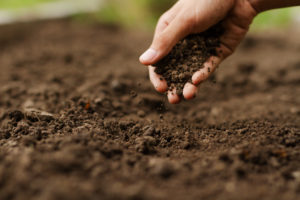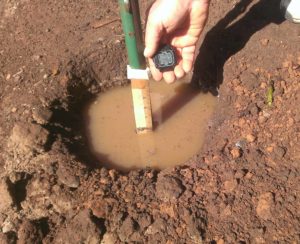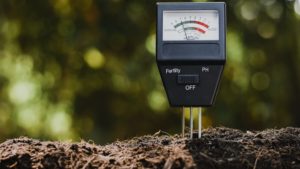Greetings, fellow growers!
If you followed the advice from my January blog, Prepare Now for a Successful Planting Season you’ve spent a little time these past few weeks getting your operational house in order: equipment maintenance up to date, tools sharpened, storage organized and cleaned, records current, batteries charged. If you even did a few of these things … good for you! As the busy growing season begins, you’ll be glad you got some of this preparation out of the way before things get crazy.
Now, as spring begins and the days are getting longer and warmer, I’m turning attention to one of the most important elements of successful growing: the soil. Getting a clear understanding of your soil’s properties will help you put corrective strategies in place now that can mean the difference between an “OK” crop and a sensational one. So, let’s talk dirt! There are several important factors every grower needs to understand about the hemp growing medium. Here we go:
Soil Type

Like a lot of agricultural crops, hemp prefers soil that is loose and well-drained. Congratulations if you have rich, loamy soil! Conversely, hemp can struggle in soils that are too sandy or that have a high clay content. Sandy soil has a gritty texture and is crumbly even when wet. Amend this kind of soil with compost. Clay soil is finely textured and can turn into hard clumps when wet. Adding organics like bark, sawdust, manure, and compost can improve clay soil. Proper attention to drainage, irrigation, and fertilization can also help hemp thrive in less-than-ideal soil conditions.
Drainage Rate

As I hinted in the preceding paragraph, soil type determines how much water your soil holds and for how long. You can do a simple percolation test yourself to understand how well drained your soil is – keeping in mind that hemp ideally likes a well-drained root environment. The percolation test is conducted by filling a small hole with water and calculating the rate of drainage to determine whether you have well or poorly drained soil. One method is to create a 6” by 12” hole with a post hole digger, fill it with water several times to assure the soil is completely saturated, and then track how long it takes for the hole to drain that final time. Rule of thumb: if it takes four hours or longer, your soil is poorly drained. Understanding the drainage rate of your soil will help you create a successful irrigation strategy, especially if you also closely monitor and record readings from your rain gauge.
pH levels

If you harken back to your high school chemistry days, you might recall pH is the metric used to determine the amount of hydrogen ions in soil. Put simply, it’s a measurement used to gauge how alkaline or how acidic the soil is. The scale spans 0 to 14. For reference: lemons are about 2.5 pH – very acidic – while ammonia is a very alkaline 11 pH. Why is pH important to hemp plants … or to any plants for that matter? For one thing, the pH level impacts how readily plants can onboard needed minerals and nutrients from the soil. Can your pH levels change over time? Yep. There are several reasons for this but suffice it to say here that pH levels are something we all need to monitor on an ongoing basis. The optimal pH range for hemp is fairly neutral: around 6.0 to 6.5, however, 5.5 to 7.0 is a widely accepted workable range. From a financial standpoint, maintaining proper soil pH for your hemp ensures that all that money you spend on fertilizers isn’t going to waste! There are all kinds of kits and meters available in the retail market that you can use to easily measure your soil pH and we encourage all growers to do so. Get a reading and then take action with additives to adjust levels up or down as needed.
Soil nutrients

In my December 2021 blog — Hemp Plant Nutrition – I go into a fair amount of detail about nutrients needed throughout the plant life cycle. I encourage you to refer to that article for more details about needed macro and micronutrients that hemp requires. But the first and most important step in hemp nutrition is having your soil tested through your county extension office or an alternative professional laboratory qualified to perform accurate core-sample soil tests. The results of these tests will be your roadmap to proper fertilization. They will reveal the precise levels of nutrients present in your soil and indicate where you need to add or balance nutrients with additives. Along with a proper pH balance, applying the correct nutrients in the correct quantities will help you avoid wasting money – or worse — stunting your crop with unnecessary or out-of-balance nutrient feedings.
Potential Threats in Your Soil

Another reason to have your soil professionally tested is to check for possible harmful substances that may be lurking. These can include chemicals, heavy metals, or other types of contaminants. For hemp growers, this is critical knowledge. Hemp is well-known as a highly bioaccumulative crop. That means that it readily draws properties – good and bad – from the soil. On a positive note, this means hemp is effective at cleaning and healing contaminated soil, even around radioactive sites, in a process called bioremediation. But for hemp growers, this bioaccumulation can have a downside as you don’t want to send a contaminated final product out into the marketplace. We don’t (yet) have firm guidance or metrics around this issue. However, as responsible growers who want to see the hemp industry expand, we should hold ourselves accountable for being aware of any potential soil toxins and take steps to mediate those. One simple step you can take is to use organic insecticides, pesticides, and fungicides that have less chance of creating unwanted environmental impacts.
In Conclusion
March is an ideal time to gather data on your soil so that you can take corrective measures now and through the growing season to ensure your crop flourishes. Soil is so much more than a growing medium for our crops. It is also a precious resource … ours to maintain and keep healthy. That stewardship starts with knowing what you’re working with and understanding what steps to take to ensure years of successful production and environmental wellbeing on your property.


Recent Comments